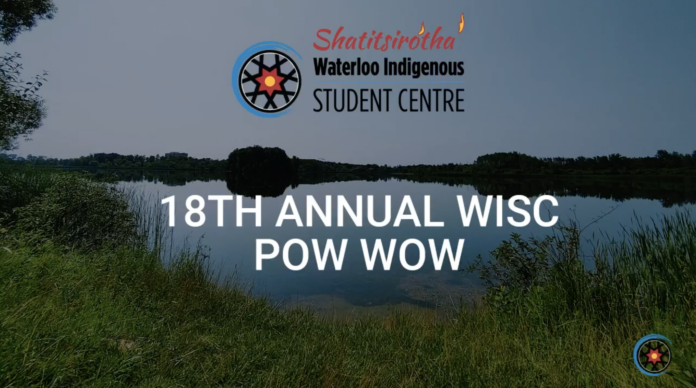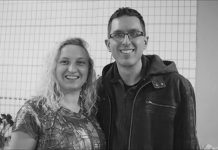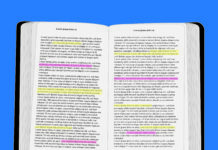The Waterloo Indigenous Student Centre (WISC) held its 18th annual Pow Wow on Sept. 24, emphasizing the importance and inclusion of Two-Spirit people within LGBTQ and Indigenous communities.
The event was organized by Bangishimo Johnston — a co-founder of Land Back Camp and Two-Spirit Anishinaabe originally from Couchiching First Nation — in partnership with WISC and hosted by Amy Smoke, Two-Spirit Mohawk Nation, Turtle Clan from the Six Nations of the Grand River.
Despite plans to host the Pow Wow in-person on the grounds of St. Paul’s University College, Johnston said they decided to host the event online for a second year in a row due to the ongoing pandemic.
“We weren’t even actually planning on having a Pow Wow this year,” Johnston said in an interview with Imprint. However, just over a month before the Pow Wow was set to take place, Johnston was brought on to help organize an in-person event, then had to re-organize the whole thing again for the virtual setting.
Johnston also mentioned that when planning the event, the committee was looking to create opportunities for Two-Spirit and queer Indigenous folks to be involved in the Pow Wow, particularly amongst the next generation.
“Two-Spirit folks, queer folks have always been here,” Johnston said. “But for a long time, spaces like Pow Wows weren’t accessible to us, so to be able to create that space for the Indigiqueer Two-Spirit community was amazing.”
“We wanted to be able to invite other people to get involved…We have to let the younger generation have the spotlight and give them an opportunity to be heard.”
The Pow Wow featured Two-Spirit elder Blu Waters, whose family is from Big River, Sask., Star Blanket Reserve and Bra’dor Lake, Eskasoni First Nations, Cape Breton, N.S. and the Red River.
“You’ve finally arrived back where you should’ve always been,” Waters said in their opening remarks. “We are all connected here today and I welcome each and every one of you here and ask that Creator takes care of you, your families, your families of the heart, your friends, and most of all, you.”
Waters went on to explain the meaning of being “Two-Spirited,” saying that the concept is not new and that gender became binary along with colonization.
Waters explained how the term was created by Dr. Myra Laramee in the 1990s at an LGBTQ gathering, before the acronym included other letters. “As you can see our letters are expanding because our gender is personal to us. We are the ones who get to define our gender and our identity and also express our Indigeneity,” Waters said.
“[Laramee] wanted to create that word — ‘Two-Spirited’ — meaning that we are encompassed and included with masculine and feminine gender identities that we know as the gender binary,” Waters continued. “But we also know that there’s a fluidity that exists where we can be both, we can be one, we can be the other, we can be a combination, we can change from one to another.”
Waters also touched on the existence of Two-Spirit people and similar terms within Indigenous languages.
“For me, language was always there with our identity. Our languages spoke about what is now known as Two-Spirited people or those that do not fit within that gender binary,” they said.
The event also showcased Two-Spirit dancers and the Cedar Hill Singers — a drum group based in Kitchener, Ont. — performing in Victoria Park, where Land Back Camp was situated until October 2020.
Seán Carson and Xicotencatl Maher spoke about their roles as Two-Spirit firekeepers — a role traditionally reserved for men.
“When we talk about ceremonial responsibilities…every single one of us traditionally would’ve needed to know where to get…water, how to start a fire, how to hunt, how to fish — all of these would’ve been responsibilities that all of us at some point would’ve had to carry or we wouldn’t have lived very long,” Carson said about the various roles assigned to specific genders.
Other performers included Lotunt Honyust of the Oneida of The Thames First Nation as well as the Anishnabe Nation Singers. Shyann Jenkins and Joe Alex Shawana also performed at the event, showcasing traditional hand drumming and jingle dress dancing.
Despite not identifying as Two-Spirit, Jenkins and Shawana still made a point to thank WISC for inviting them to take part in the Pow Wow and share their talents.
Gabe Calderón, who is Two-Spirit Anishnaabe, L’nu and mixed white, performed a song specifically for Two-Spirit folks. They spoke about being nihz-manidowag or Two-Spirit and the role they play during ceremonies.
“What [being Two-Spirit] really comes down to is someone that maintains the balance and someone that exists in this in-between place,” Calderón said. “As Two-Spirit people, when we go to ceremonies or when we go to Pow Wows or gatherings…because Creator gifted the men the fire, if we go and we see that the men need help with that fire keeping, we can offer that…and the same thing goes with the women. They were gifted that water from Creator and we can go see if they need help.”
The last performers of the event were Alicia Blore and Megan Southwell, showcasing Métis jigging and fiddle music. Johnston mentioned that in previous years when the event was held in-person, Pow Wow attendees would be able to participate and learn how to jig. This year, Southwell and Blore still made a point to engage with audience members by teaching jig steps virtually.
Looking forward to next year, Johnston said they are eager to hold the Pow Wow in-person again in Waterloo Park.
“It might not be the number that we usually have next year in Waterloo Park, it’ll probably be fenced. But still, I’m hoping that we can gather again in a big public space,” Johnston said.
































